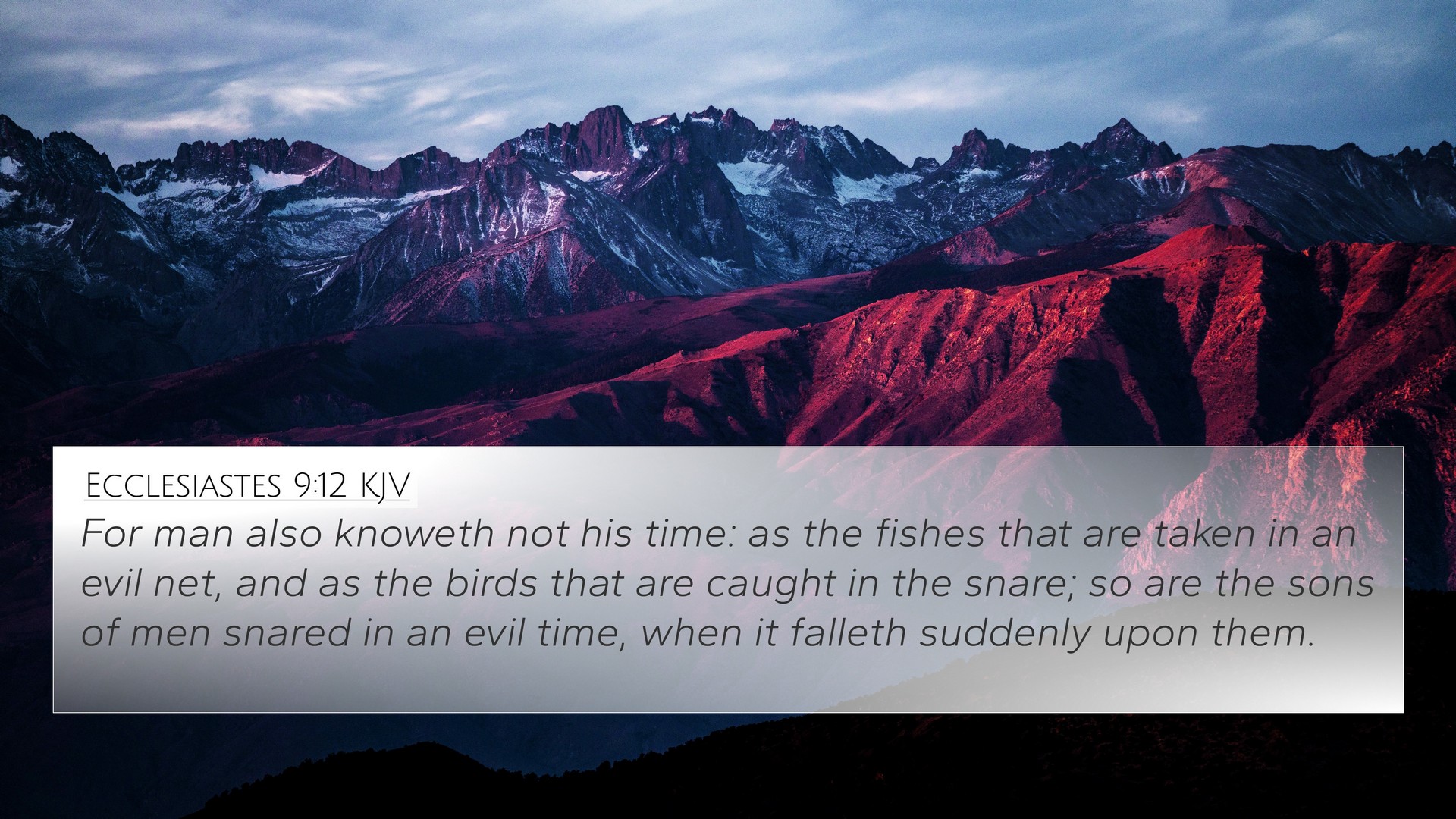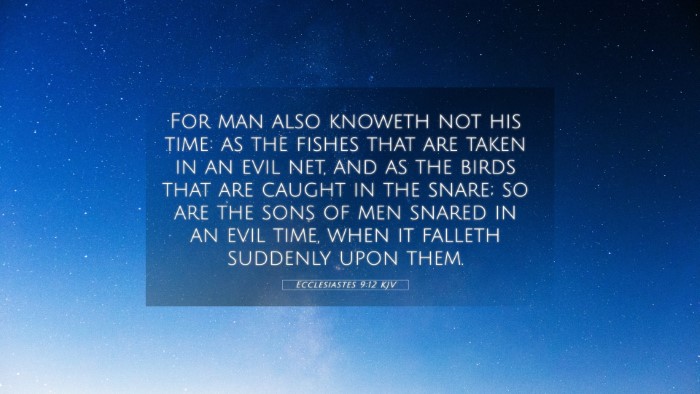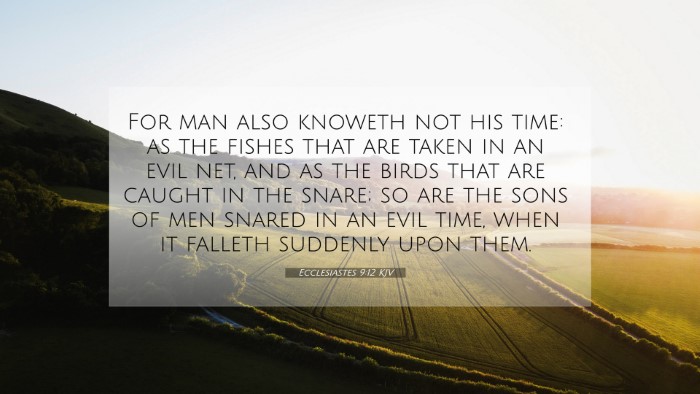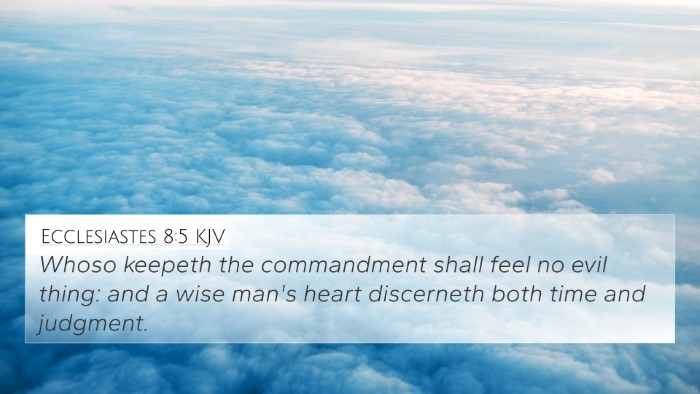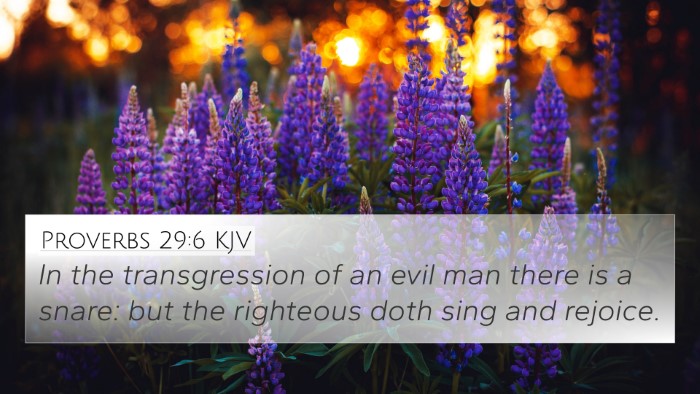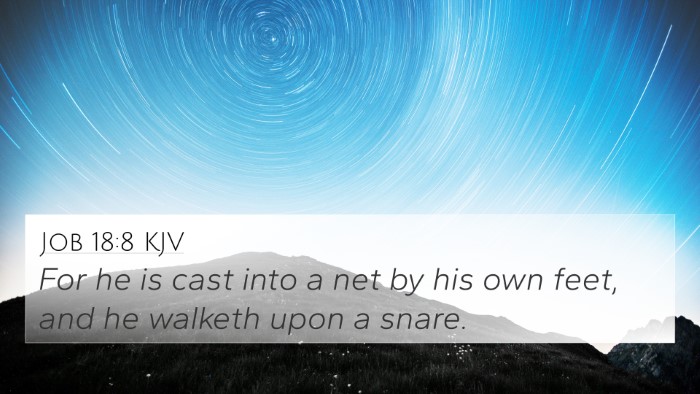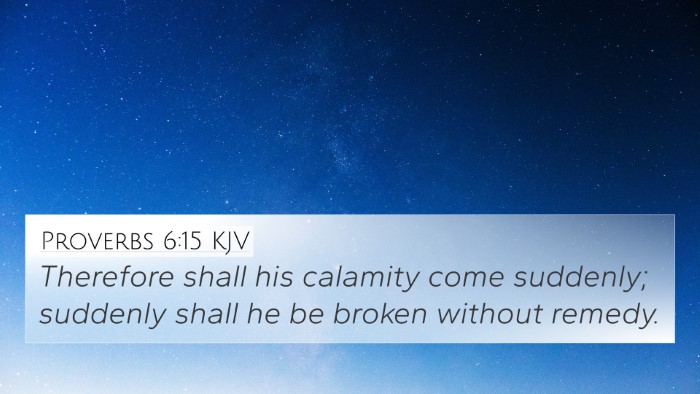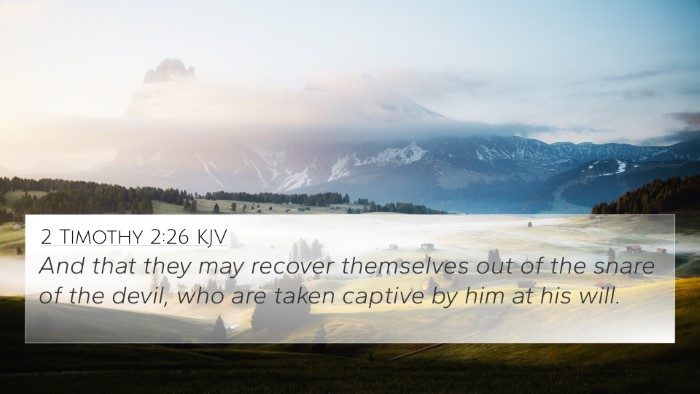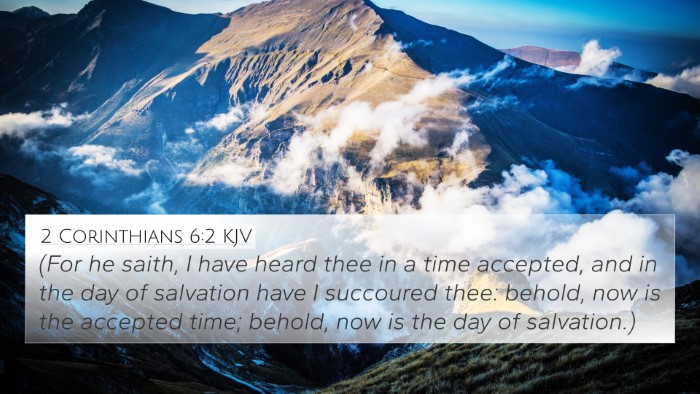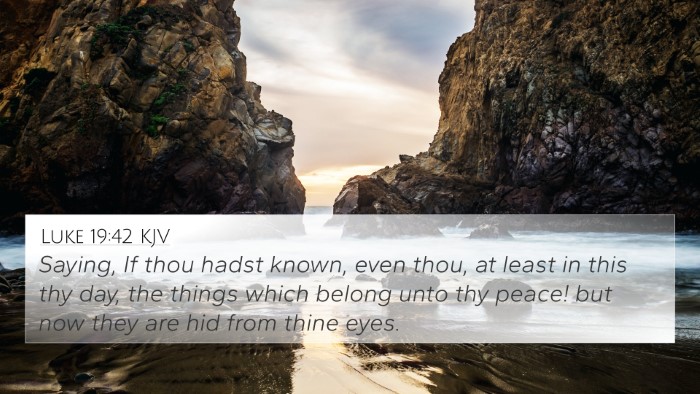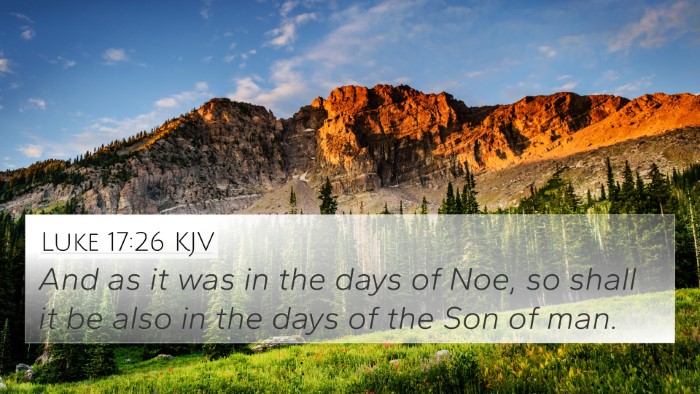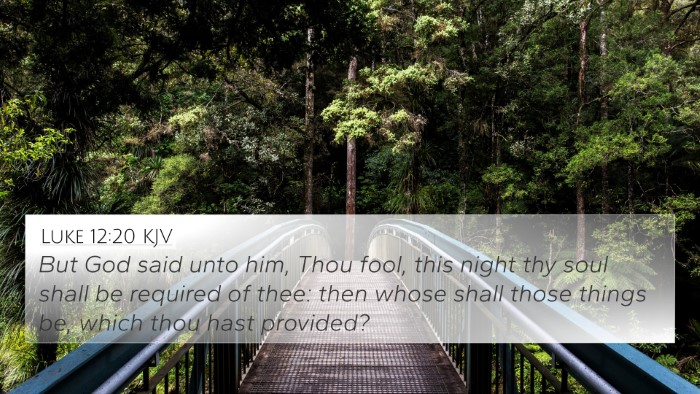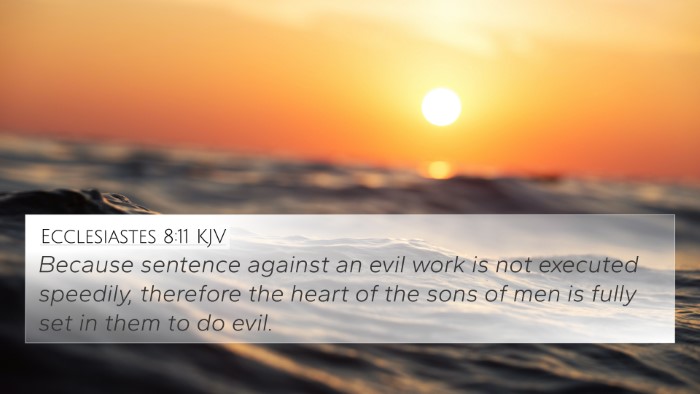Understanding Ecclesiastes 9:12
Ecclesiastes 9:12 states: "For man also knoweth not his time: as the fishes that are taken in an evil net, and as the birds that are caught in the snare; so are the sons of men snared in an evil time, when it falleth suddenly upon them."
Summary of Meaning
This verse encapsulates the unpredictability of life and the sudden nature of misfortune that can befall individuals. The imagery of fish caught in a net and birds ensnared signifies how humans are often caught off guard by adverse circumstances. Public domain commentaries, including those by Matthew Henry, Albert Barnes, and Adam Clarke, provide richer insights into the themes expressed in this verse.
Commentary Insights
Matthew Henry's Commentary
Henry emphasizes the uncertainty of life and the inevitability of facing unforeseen challenges. He notes that just as fish do not anticipate being caught, humans often navigate existence without a clear understanding of when difficulties might arise. This awareness encourages believers to live wisely and prepare for the uncertainties life holds.
Albert Barnes' Notes
Barnes highlights the fleeting nature of time and human understanding. He interprets the verse as a caution that life can change abruptly, and that wisdom lies in recognizing one's vulnerability. Barnes suggests that the "evil time" represents moments of trial, underscoring the need for spiritual preparedness and resilience.
Adam Clarke's Commentary
Clarke reflects on the metaphor of being ensnared, suggesting that calamity often arrives unexpectedly in life. His analysis points out that, like traps set for birds, many dangers lurk unseen until they strike. This commentary encourages introspection regarding human reliance on personal plans rather than divine providence.
Thematic Connections and Cross-References
Ecclesiastes 9:12 interconnects with multiple Bible verses that share themes of divine control, human uncertainty, and the importance of vigilance:
- James 4:14: "Whereas ye know not what shall be on the morrow..." - Emphasizing the uncertainty of tomorrow, akin to Ecclesiastes 9:12.
- Proverbs 27:1: "Boast not thyself of tomorrow; for thou knowest not what a day may bring forth." - Another reminder of life's unpredictability.
- Lamentations 3:22-23: "It is of the Lord's mercies that we are not consumed..." - Highlighting God's daily mercy and our reliance on His grace amidst life's uncertainties.
- Matthew 6:34: "Take therefore no thought for the morrow..." - Encouraging a focus on the present and trust in God's provision.
- 1 Peter 5:8: "Be sober, be vigilant; because your adversary the devil, as a roaring lion, walketh about..." - Urging vigilance against unexpected dangers.
- Job 14:1: "Man that is born of a woman is of few days and full of trouble." - Reflecting on the brevity of life and the inevitability of trials.
- Luke 12:20: "But God said unto him, Thou fool, this night thy soul shall be required of thee..." - A stark reminder of how suddenly life can change.
Cross-Referencing the Themes
This verse encourages deeper examination of how various scriptural contexts engage with themes of mortality, divine sovereignty, and human frailty.
The Importance of Cross-Referencing
Cross-referencing Bible texts enriches our understanding and facilitates a thematic dialogue across the scriptures:
- Utilizing Bible concordance tools aids in identifying relevant verses.
- How to use Bible cross-references expands knowledge of interconnected themes.
- Engaging in cross-reference Bible study enhances comprehension of biblical narratives and teachings.
- Utilizing bible cross-reference guides can provide structured study methods.
Conclusion
Ecclesiastes 9:12 serves as a poignant reminder of our limited understanding of time and the unforeseen trials that life often presents. Through the insights of various commentaries and connections with other scriptures, it becomes evident that believers are encouraged to live with an awareness of their reliance on God's grace and the necessity for spiritual vigilance amidst uncertainty.
